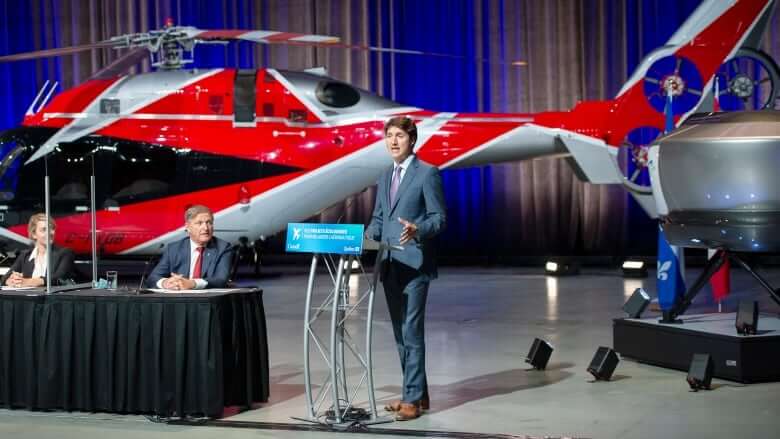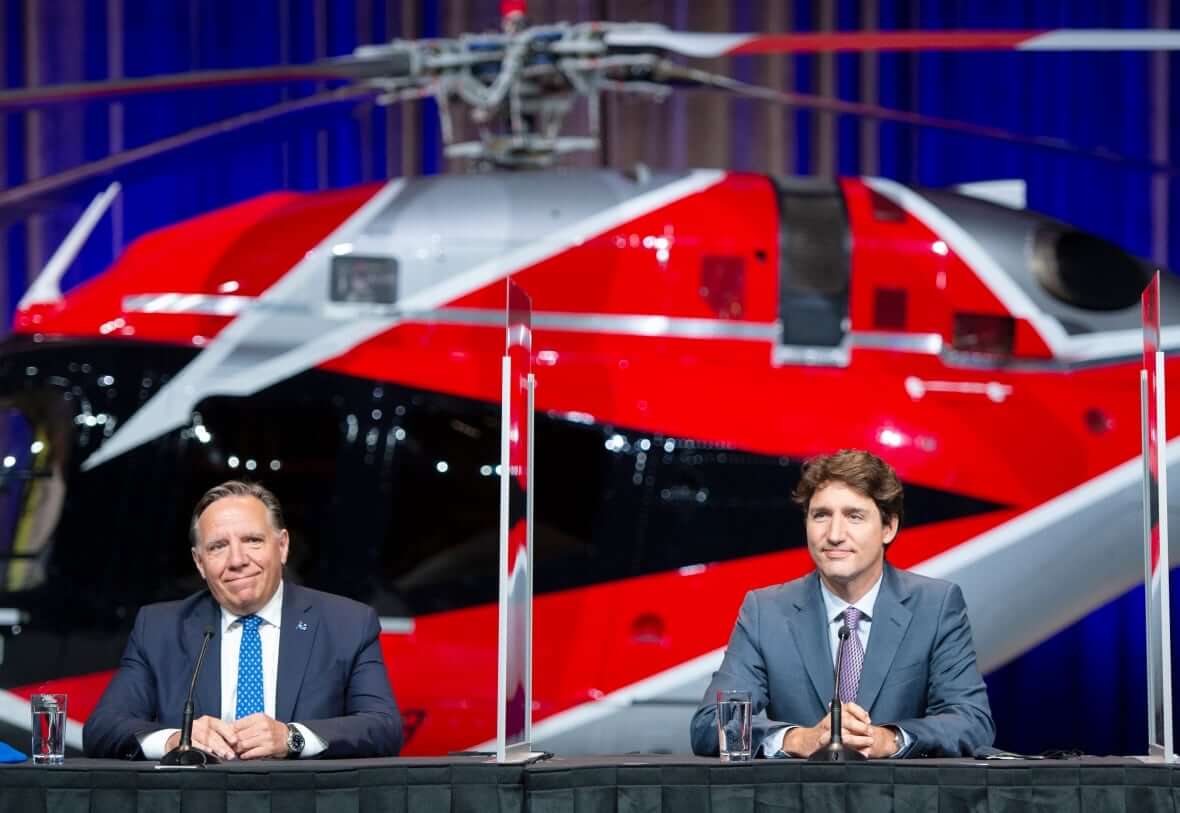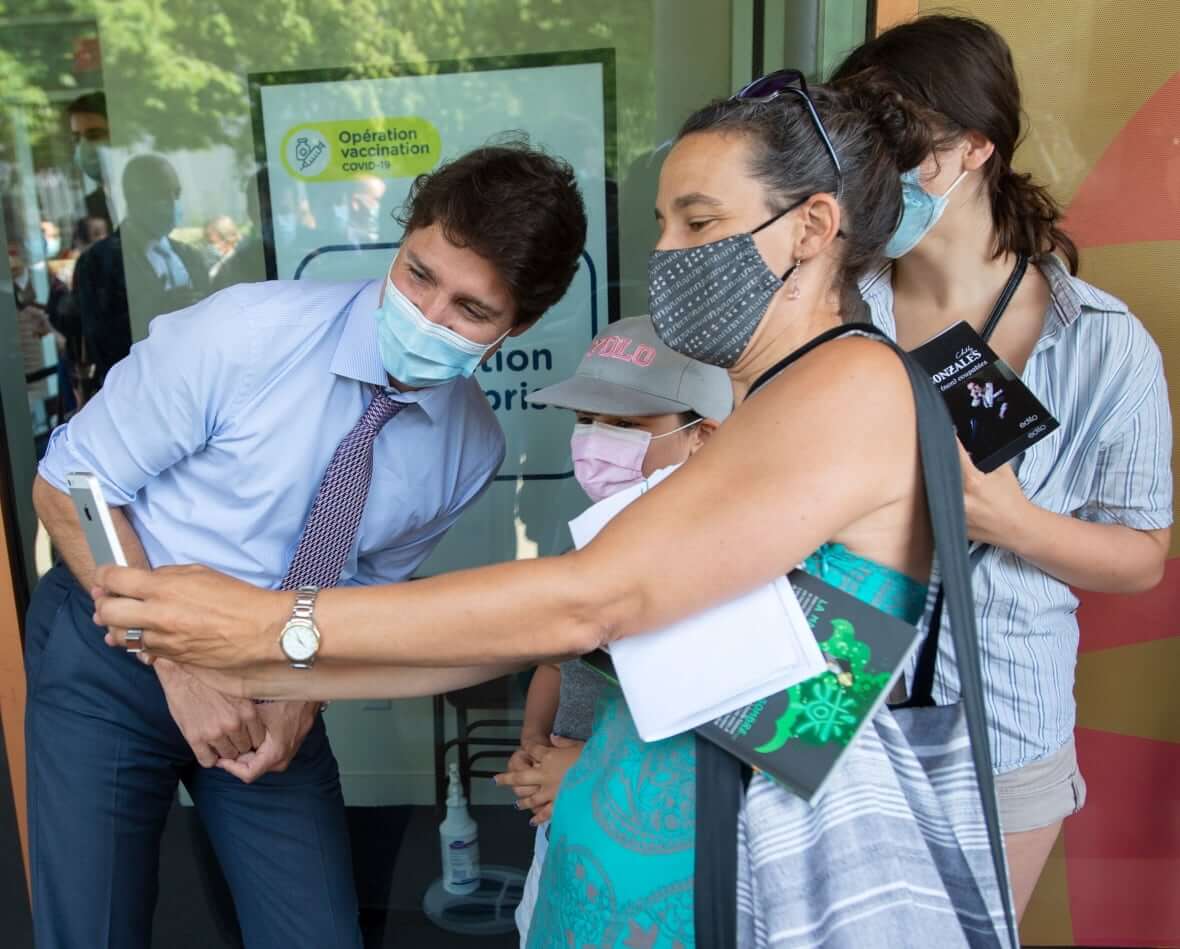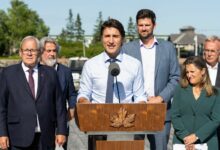Trudeau announces $440M for aerospace industry to create jobs in Quebec, fund green tech

Speaking in Montreal on Thursday, Prime Minister Justin Trudeau announced that his government will invest $440 million to support innovation and create jobs in the aerospace industry.
Quebec, Ottawa invest $100M to build electric vehicle battery plant
With the Quebec government contributing as well, the total investment comes to $693 million.
Trudeau said the funding will allow Bell Textron Canada, CAE, and Pratt & Whitney Canada “to continue to innovate, and to break into new markets.”
He added that the investment “will also secure the industry’s long-term future in Canada by developing green aviation projects, and more clean technologies.”
The investment is expected to create or support 12,000 jobs and 6,200 student internships.
Trudeau highlighted the importance of the industry in Quebec, saying that the province “is one of the few places capable of designing an aircraft from A to Z, in addition to making it fly and certifying it.”
At the same time, Trudeau announced the Aerospace Regional Recovery Initiative, aimed at supporting the economic recovery of small and medium-sized firms in the sector across Canada.
This initiative, which is ready to receive applications starting immediately, represents an additional spending of $250 million over three years, $92.5 million of which is earmarked for Quebec.
Federal Economic Development Minister Mélanie Joly emphasized that the aerospace industry was hit hard during the pandemic and that small and medium-sized firms need help getting back on their feet.
“The goal of this fund is to encourage them to become more competitive … by innovating, by becoming more digital and greener, and by ensuring that they will be able to take risks in the future.”

Speaking at the news conference, Quebec Premier François Legault said that this news will result in not just new jobs, but jobs that pay well.
Legault emphasized that he sees no reason why Quebec should not be as wealthy as its neighbour, Ontario, and that increasing the number of employment opportunities where people can make $70,000 or $80,000 a year will help close the gap.
He said of the jobs which will be created, 1,000 of them will be based in Quebec and have an average salary in that range.
The premier said that some of the money will go toward helping Pratt & Whitney continue development on its turboprop hybrid engine. Other projects that will see a portion of this money include developing top-notch flight simulators and hybrid electric helicopters.
François-Philippe Champagne, federal minister of innovation, science and industry, said that the announcement signals the government’s support of “the green transformation of the aerospace industry.”
“I believe that it’s a historic moment for the industry in Canada,” Champagne said, adding that the promised jobs are guaranteed for the next decade.
‘Heat is on’ to stay competitive
John Gradek, a former executive at Air Canada and a faculty lecturer and co-ordinator of the aviation management program at McGill University, told CBC that the investment comes at a time when Quebec needs to show it can be competitive.
As one of three major aerospace hubs in the world, Montreal “has to pick up its bootstraps and figure out what the industry is going to be looking for over the next 20 years,” Gradek said.
“Unless Montreal gets on that bandwagon real quick, it may be bypassed by other centres that are investing a lot in green technology,” he said.
Gradek noted that as the aerospace sector is moving toward more environmentally responsible development, it’s important that major players in Canada are able to keep up.
“Montreal has no choice, but if it wants to maintain its position globally as an aerospace centre of excellence, it does need to have this technology there.”
Gradek also says the money allocated to help small and medium-sized businesses is “definitely needed.”
“They are the suppliers of components and parts to the big boys. So when it comes to Bell Textron or Pratt & Whitney, or even Airbus, they are looking to local suppliers to be able to supply them with the parts and components that they need for their final product.”
“And it’s no surprise that organizations like Airbus are quite concerned about the level of competitiveness and pricing and quality of the suppliers in Canada and in Quebec and Montreal.”
Gradek said if the prices and quality can’t stay competitive, it wouldn’t be hard for a company like Airbus to look elsewhere.
“The heat is on for Quebec’s small and medium enterprises that supply these components,” he said.”The incentive for Airbus to stay in Quebec and Mirabel is to make sure that the small and medium-sized manufacturers stay very competitive and this investment may help that along the way.”
Gradek noted, however, that aside from internships, the government’s plan doesn’t include any support for education or training programs that produce the engineers and technicians who will be part of this innovation.
‘We’re not there yet in terms of getting the right skill sets in school and higher learning colleges and universities to be able to deliver to that need for engineers who know how to deal with hybrids and hydrogen and electrics. So there is still work to be done.”
Not a campaign stop, says Trudeau
While the announcement comes amid speculation about when a federal election might be called, Trudeau was adamant that his appearance in Montreal was not part of an attempt to bolster support in Quebec.
“In an election campaign you make promises about what you might do once you’re elected. Right now, we’re continuing the work that we got elected for in 2015 and 2019 — that is, delivering for Canadians on both good jobs and fighting climate change,” he said.

Trudeau also responded to criticism that the support for the sector did not come sooner, when jobs were being cut during the height of the pandemic.
He emphasized that his government chose to invest in larger programs like the CERB instead of offering support to specific industries.
“The choice that we have made as a federal and provincial government is to support the workers, to support businesses, so that we could get through this pandemic in the best way possible,” he said. “We made the decision and it was the right choice.”








Redes Sociais - Comentários